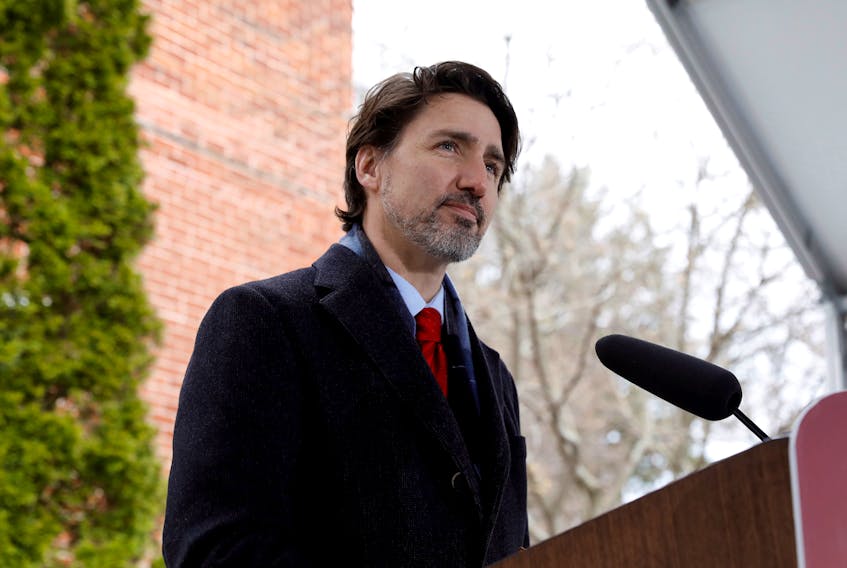OTTAWA, Ont. — Ottawa is expanding its emergency business loan program to include more businesses, including those with no payroll.
The Canada Emergency Business Account (CEBA) is a program that provides zero-interest, partially forgivable loans up to $40,000 to small businesses with payrolls between $20,000 and 1.5 million experiencing reduced revenues due to COVID-19. Announced April 9, the program is aimed at helping businesses pay non-deferrable operating costs like rent and utilities. Twenty-five per cent of this loan is forgivable if repaid by December 31, 2022.
During his daily press briefing, Prime Minister Justin Trudeau announced Monday the CEBA will now be available to businesses with payrolls under $20,000 that are sole proprietors receiving income directly from their businesses, businesses that rely on contractors, and family-owned corporations that pay employees through dividends rather than payroll.
“If you are the sole operator of a business, if your business relies on contractors, or if you have a family-owned business and you pay employees through dividends, you will now qualify,” Trudeau said.
“For example, for a hair salon owner with stylists who rent chairs, for a local physiotherapist, for an independent gym owner with contracted trainers, this is for you.”
In order to be eligible, the newly qualified businesses will need an operating account at a participating financial institution, a Canada Revenue Agency business number, to have filed a 2018 or 2019 tax return, eligible non-deferrable expenses between $40,000 and $1.5 million, and eligible non-deferrable expenses such as rent, property taxes, utilities, and insurance.
According to a press release from the PMO, the government also plans to work on potential solutions to help business owners and entrepreneurs who operate through their personal bank account, as opposed to a business account, or have yet to file a tax return, such as newly created businesses.
Funding will be delivered in partnership with financial institutions and expenses will be subject to verification and audit by the Government of Canada.
More details, including the launch date for applications under the new criteria, will follow in the days to come, Trudeau said.
Ottawa says, to date, over 600,000 loans have been approved, representing a total of more than $24 billion in credit.
In an emailed statement, the Canadian Federation of Independent Business (CFIB) said it welcomes the expansion of the eligibility criteria for CEBA program to include businesses with no payroll, but further recommends that the government increase eligibility for the program, the total amount of the loan, as well as the forgivable portion.
“The initial $40,000 may not be enough for many businesses who continue to be shut down or those facing a long recovery period,” CFIB president Dan Kelly said in the release.
“Businesses with a 2019 payroll above $1.5 million are also still excluded despite many needing help.”
The Canadian Chamber of Commerce also issued a statement saying it welcomes the news as it means many more businesses with non-deferrable expenses between $40,000 and $1.5 million will now qualify, but said the requirement for businesses to have an account with a financial institution to qualify poses a roadblock.
“Many small firms do not have a separate account for their businesses and will still not qualify,” the statement reads. “We hope the government will address this soon.”









